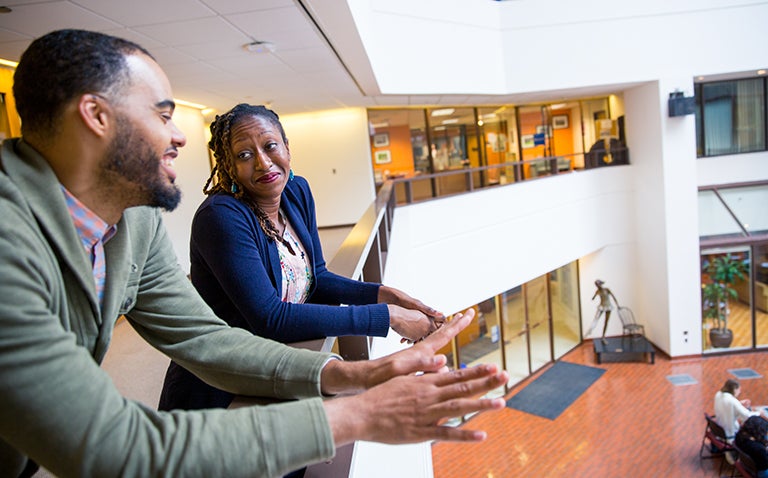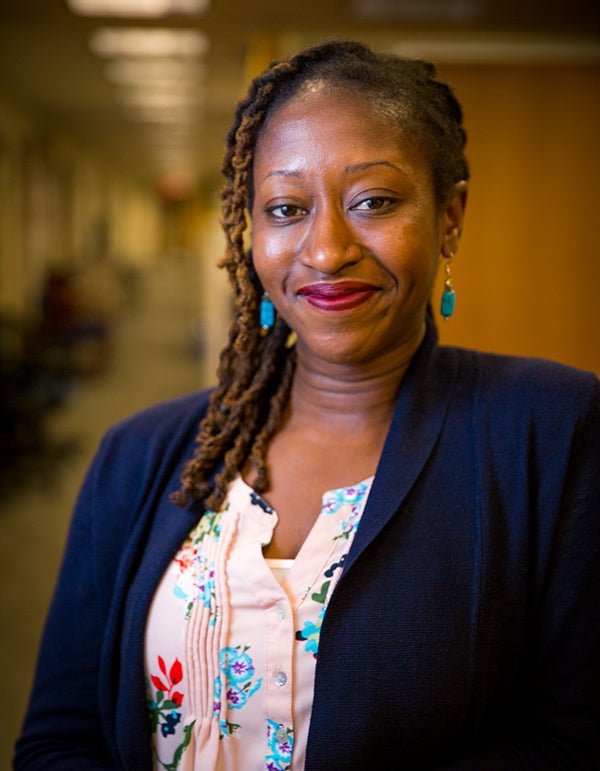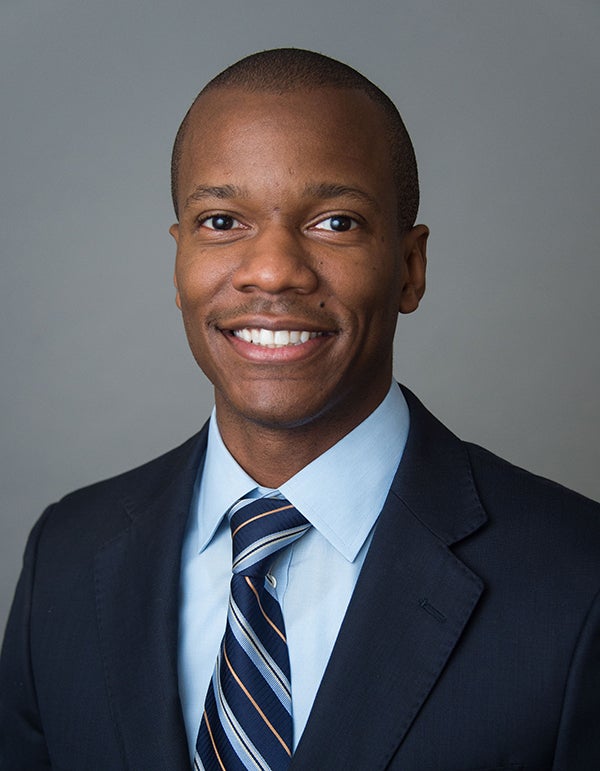Title: New Faculty Expertise in Race, Politics, Feminism, Housing Boosts African American Studies Department
Two recently hired scholars are bringing their expertise in race and politics, affordable housing and feminism to Georgetown’s African American studies department.

–
Marcus Board and Rosemary Ndubuizu, both assistant professors of African American studies, are among the joint and affiliated faculty members who make up the department, which began offering a major last fall.
Ndubuizu researches how housing policies are shaped by race, gender, political economy and ideology, while Board’s research interests focus on race and politics and public opinion.
Robust Research Agendas
Robert Patterson, department chair and associate professor of African American studies, says the newest additions to the faculty have robust research agendas that complement the department’s intellectual mission.
“The quantitative and qualitative data their research builds upon will augment the scholarly conversation in which the department currently is engaged,” Patterson adds.
The university established the department and major after increasing student interest in the minor and the university’s emphasis on interdisciplinary study and racial justice.

Affordable Housing
Ndubuizu hopes to round out the department’s academic analysis of Washington, D.C., with her scholarship and her prior experience as a community organizer working on D.C. affordable housing issues.
She says D.C., like many cities, has developers and city government officials who say, “We can’t go that low, we can’t be that affordable because those days are over,” when it comes to affordable housing in the city.
“We’re in the age of privatization where developers and city government officials try to go for the most expensive form of affordable housing that can be built, essentially justifying gentrification with your public subsidies,” explains Ndubuizu, who is teaching two sections of Intro to African American Studies this semester.
The California native joined the staff of One DC, a nonprofit committed to creating equity for all in D.C. neighborhoods, in 2006 after studying politics and education reform and graduating with a bachelor’s degree from Stanford University.
Community StewardS and Warriors
“Through my work as a community organizer, I realized certain themes that continually came up in our political battles with city council,” Ndubuizu recalls. “One of them was around the idea of not only whether you deserve access to low-rent, decent affordable housing, but also this idea of making sure that once black women get access to it that they can keep it.”
Ndubuizu’s work as an organizer led her to pursue her Ph.D. in women’s and gender studies at Rutgers University.
“I wanted to further this idea that black women, not only are community stewards, we’re also community warriors,” she says. “We’re the ones who have been fighting to make sure we have access to affordable housing, that our children have a place to sleep that’s equitable, that our families have access to the best forms of living. And it doesn’t matter what income you have. It’s more about making sure that our world redistributes resources so everyone is well taken care of.”
Next semester, she will teach a course on Race and Radical Feminisms.

Coercion Without Conflict
Board’s research also will inform his classes this semester, which include Contested Political Representations and Black Interpretations of Contemporary Unrest.
“I think the underlying current in my work is about how people are encouraged and pushed to things or behaviors or express attitudes and beliefs that hurt them and how they can be co-opted in those ways,” explains Board. “One of the things my research looks at is how that type of coercion happens, even when we don’t see actual conflict.”
Board earned his doctoral degree from the University of Chicago in political science as well as two master’s degrees in political science and social sciences. Before his graduate studies, Board earned his bachelor’s degrees in Africana studies and political science from the University of Maryland-Baltimore County in 2007.
Something More Powerful
Beyond his research, Board hopes to make an impact on students at Georgetown.
“I told students in one of my classes that most of the good ideas that I work on now came from some version of what I literally have been thinking about forever,” he says. “Now my ideas are just more nuanced, but they are still the same ideas.”
“If I had known that my ideas were valuable, I would have realized sooner that I could turn those ideas into something more powerful for someone other than just myself,” he adds. “And I want them to know that, too.”

Intellectual Energy
Board and Ndubuizu come to Georgetown after the university established a Working Group on Racial Justice to examine ways to create a home for researching slavery and its legacies as well as elevate and accelerate efforts to address the enduring legacy of racism and segregation in the American experience.
“As a department, we are enthusiastic about the intellectual energy these two new professors bring,” says Patterson, who served as co-chair of the racial justice working group, “and we look forward to collaborating with them to advance their research projects and the department’s mission.”